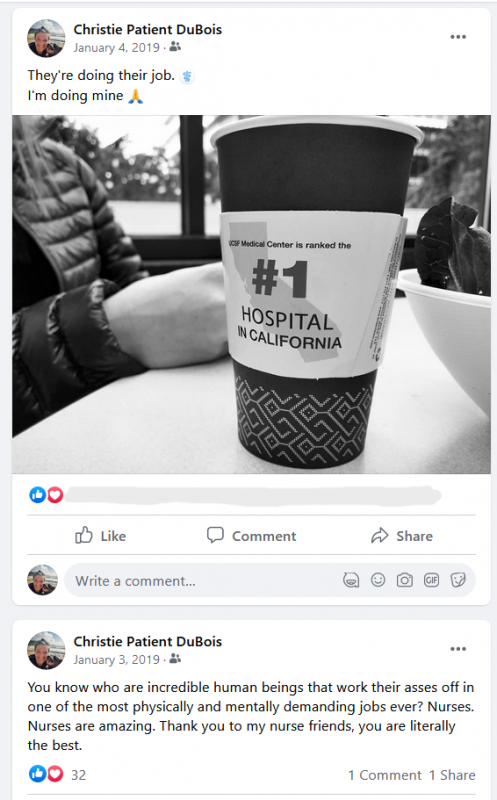Social Media Advocacy Requires Radical Vulnerability

As a millennial, I came of age with the internet. I remember the thrill of choosing the perfect screen name for AOL Instant Messenger before going to camp. (luv4pigs31, if you were wondering.) In eighth grade, I created my first social media account. Back in the early 2000s, Myspace was the place.
Myspace, a social networking website, was good for lots of things. For one, a whole generation learned HTML coding by picking apart and rearranging the gibberish in the homepage builder. We learned basic photography skills — who knew that “Myspace angles” would lead me to a career in portrait photography? And a lot of us learned some important — and often painful — lessons about public relations.
The Wild West days of social media were full of broken friendships (thanks, “top 8”), injured reputations, and some truly terrible hairstyles. May all those things rest in peace.
Social media sites of all different kinds exist now, and they are more accessible than ever. And as millennials have learned to use the social internet in a more critical way, the platforms have also matured.
After some cringeworthy social media blunders in my youth, I have struggled to find the balance of how to use social platforms as an adult. Especially in the politically divided, emotionally charged, fake-news era we are living in, I find sharing anything personal online to be extremely stressful.
Even in a time when I would have benefited from the support of my social network, I was cautious with my posts. My Facebook feed from the time my mom, Holly, was in the hospital, due to idiopathic pulmonary fibrosis, is full of cryptic updates, references to weeds (they never die), and odds and ends photos. I never once said my mom was in the ICU fighting for her life on a ventilator. I never even said she was sick.

A screenshot of Christie’s vague hospital-related Facebook posts in January 2019. (Screenshot by Christie Patient)
I chose privacy even though I can give many examples of how other people’s vulnerability on social media has impacted my own life. I ended up here, writing this column, by way of a dear friend I made because she shared her transplant story on Facebook. I know it has value. And yet, I still find it hard to open up.
I struggle between protecting my private life and feeling the responsibility to pay forward the vulnerability that others offered me. To a new caregiver, I could be the person that Kathleen was to me when my mom was in the ICU. The stories I keep most private could blow the lid off of topics we normally keep in a locked box.
Stories matter. And mine could be impactful. So why is it so hard?
If it were strictly about privacy, I wouldn’t have been writing this column for the last three years. Somehow, it’s easier to be vulnerable here when I know my readers are either complete strangers or trusted allies. I’ll never run into you when I visit old haunts and have to see in your face that you know my secrets. And if I do, then you likely already know them.
I guess I’m afraid of all the in-between people knowing about the parts that hurt. Acquaintances, distant relatives, out-of-touch friends, and brand-new ones. To share these stories on social media is to give a tender part of me to people who might not treat it as sacred.
I want to use my stories for good. I want to spread awareness and educate people about rare diseases like pulmonary fibrosis. I want to advocate for disability issues. I want to talk about death and grief. I want to rally people around healthcare legislation and get everyone I know to put their name on the national organ donor registry.
But I don’t always know how to do that without letting people see parts of my life I’ve guarded.
I didn’t want to let in the “in-betweeners” when my mom was fighting for her life, and I don’t know if I even can now, three years later. I’m afraid that my willingness to be vulnerable will be taken advantage of. The burden of educating always falls upon survivors. And yes, we are survivors, but even in victory, there is lingering trauma.
Lastly, I guess, is that I don’t want people to pity me because my mom almost died from a disease that hardly anyone has heard of.
But I do want more people to have heard of it. I want them to know the symptoms so they can catch it early. I want more dollars going to research, or to the United Network for Organ Sharing. I want presumed consent to be the default organ donation status in the U.S. — opt out, not opt in. But I am not pulling my weight in social media advocacy because I am afraid to harness the power that was bestowed upon my keyboard-wielding fingertips.
I’m trying to find the courage, not to care, but to share.
Note: Pulmonary Fibrosis News is strictly a news and information website about the disease. It does not provide medical advice, diagnosis, or treatment. This content is not intended to be a substitute for professional medical advice, diagnosis, or treatment. Always seek the advice of your physician or other qualified health provider with any questions you may have regarding a medical condition. Never disregard professional medical advice or delay in seeking it because of something you have read on this website. The opinions expressed in this column are not those of Pulmonary Fibrosis News or its parent company, Bionews, and are intended to spark discussion about issues pertaining to pulmonary fibrosis.









Leave a comment
Fill in the required fields to post. Your email address will not be published.